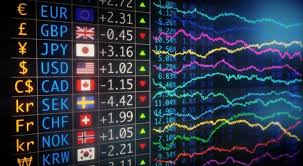
What is Forex Trading?
Forex trading, also referred to as foreign exchange trading, is the act of buying and selling currencies in the global marketplace. The forex market is one of the largest and most liquid financial markets in the world, with a daily trading volume exceeding $6 trillion. Unlike stock markets, which operate on a centralized exchange, the forex market operates over-the-counter (OTC), enabling participants to trade directly via electronic networks. The aim of forex trading is to profit from fluctuations in currency values. Many traders engage in forex trading using various strategies and tools to forecast price movements and make informed trading decisions. To learn more about forex and its potential, you might consider resources like what is forex trading https://acev.io/.
How Forex Trading Works
At its core, forex trading involves the exchange of one currency for another, and it works on the principle of currency pairs. Each pair consists of two currencies: the base currency and the quote currency. For instance, in the pair EUR/USD, the euro (EUR) is the base currency, and the US dollar (USD) is the quote currency. When you trade this pair, you are effectively betting on whether the euro will appreciate or depreciate against the dollar.
Currency Pairs
Currency pairs are classified into three main categories:
- Major pairs: These are the most traded pairs in the forex market, which include currencies from the world’s largest economies, such as USD, EUR, JPY, and GBP. Examples: EUR/USD, USD/JPY.
- Minor pairs: These pairs do not involve the US dollar but are still widely traded, like EUR/GBP or AUD/NZD.
- Exotic pairs: These pairs consist of a major currency paired with a currency from a smaller or emerging economy, such as USD/TRY (US dollar/Turkish lira) or USD/ZAR (US dollar/South African rand).
The Participants in the Forex Market
The forex market is composed of various participants, each with different motivations for trading:
- Central banks: They control monetary policy and influence currency values to stabilize their economies.
- Financial institutions: Commercial banks and investment firms trade currencies for both clients and for their own accounts.
- Corporations: Businesses involved in international trade may engage in forex trading to manage currency risks associated with foreign transactions.
- Retail traders: Individual traders participate in forex trading through online platforms, often with the goal of generating supplemental income.
- Speculators: These traders seek to profit from currency fluctuations by buying and selling based on market analysis.
Benefits of Forex Trading

Forex trading offers several advantages, making it an attractive option for both novice and seasoned traders. Some key benefits include:
- High liquidity: The forex market operates 24 hours a day, allowing traders to buy and sell currencies at any time without affecting the market price significantly.
- Leverage: Many brokers offer leverage, allowing traders to control a larger position with a relatively small amount of capital. This can amplify profits but also increases risk.
- Diverse trading options: With a variety of currency pairs available, traders can choose pairs that suit their market outlook and risk tolerance.
- Accessibility: Online trading platforms have made forex trading accessible to anyone with an internet connection, allowing individuals to participate in the market easily.
Risks of Forex Trading
While forex trading can be profitable, it is also associated with significant risks. Understanding these risks is crucial for successful trading:
- Market volatility: Currency values can fluctuate dramatically due to economic events, geopolitical situations, and market sentiment, leading to unexpected losses.
- Leverage risk: While leverage can amplify profits, it can also increase losses, resulting in a margin call if the market moves against the trader.
- Lack of regulation: The decentralized nature of the forex market means that it is less regulated than other financial markets, which can expose traders to fraudulent schemes.
- Emotional trading: Many new traders struggle with emotional decision-making, leading to impulsive trades that may result in losses.
Getting Started in Forex Trading
For those interested in entering the world of forex trading, here are some essential steps to consider:
- Education: Start by learning the basics of forex trading, including terminology, strategies, and market analysis.
- Select a reliable broker: Choose a broker that offers competitive spreads, robust trading platforms, and strong customer support.
- Create a trading plan: Develop a solid trading plan that outlines your goals, risk tolerance, and trading strategies.
- Practice with a demo account: Before investing real money, practice trading on a demo account to gain experience without financial risk.
- Start small: Begin with a small investment and gradually increase your trading size as you gain confidence and experience.
Tips for Successful Forex Trading
Here are some tips to help you become a successful forex trader:
- Stay informed: Keep abreast of economic news, market developments, and geopolitical events that may affect currency prices.
- Use technical analysis: Learn to read charts, identify patterns, and use indicators to make informed trading decisions.
- Manage risk: Implement risk management strategies, such as setting stop-loss orders and avoiding over-leveraging your positions.
- Keep emotions in check: Avoid letting emotions drive your trading decisions. Stick to your trading plan and strategies.
Conclusion
Forex trading offers exciting opportunities for those willing to learn and adapt to this dynamic market. With the right education, tools, and strategies, traders can navigate the complexities of the forex market and work towards achieving their financial goals. Remember that success in forex trading requires patience, discipline, and continuous learning. Whether you are a complete beginner or an experienced trader, the journey in forex trading can be rewarding if approached with the right mindset.